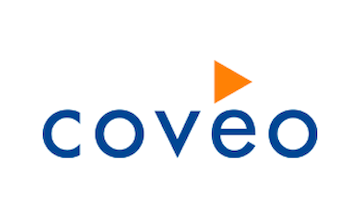A Content Management System (CMS) is used to store, manage, and publish digital content. A CMS with vector search is a powerful tool that can provide more accurate search results. In this article, we will explore the reasons why a CMS would use vector search.
What is Vector Search?
Vector search is a type of search algorithm that uses mathematical calculations to search through data. It is used to search for similarities between data points. Vector search is commonly used in machine learning and artificial intelligence applications.
Why Use Vector Search in a CMS?
A CMS with vector search can provide more accurate search results. It can search for similarities between documents, images, videos, and other types of digital content. This means that users can find the information they are looking for more quickly and easily.
Vector search can also help with content recommendations. By analyzing user behavior and content, a CMS with vector search can suggest related content that users may be interested in.
How Does Vector Search Work in a CMS?
Let’s take a look at a code example to see how vector search works in a CMS:
from sklearn.feature_extraction.text import CountVectorizer
from sklearn.metrics.pairwise import cosine_similarity
# Sample documents
documents = [
"The quick brown fox jumps over the lazy dog",
"A quick brown dog jumps over the lazy fox",
"The lazy dog sleeps all day"
]
# Vectorize documents
vectorizer = CountVectorizer().fit_transform(documents)
# Calculate cosine similarity
cosine_similarities = cosine_similarity(vectorizer)
# Print results
print(cosine_similarities)
In this example, we use the CountVectorizer() function from the sklearn library to vectorize our sample documents. We then use the cosine_similarity() function to calculate the similarity between the documents. The output is a matrix that shows the cosine similarity between each pair of documents.
Benefits of Vector Search in CMS
Better search results
A CMS with vector search can provide more accurate search results as it searches for similarities between documents, images, videos, and other types of digital content. This means that users can find the information they are looking for more quickly and easily.
Content recommendations
Vector search can help in making recommendations to users based on their behavior and content. A CMS with vector search can analyze user behavior and content, and suggest related content that users may be interested in.
Improved user experience
With a CMS with vector search, users can get the information they need more quickly, which improves their experience. A good user experience is essential in building a loyal user base.
Saves time
A CMS with vector search can save users time by providing them with the information they need more quickly. This can be beneficial for businesses as it means that users can complete tasks more quickly and efficiently.
Better insights
A CMS with vector search can help businesses gain better insights into user behavior and content. This can help businesses make informed decisions about their content strategy.
How ANANT can help
ANANT is a company that specializes in CMS solutions. We can help you with your CMS needs, including creating a CMS with vector search. Our team of experts can help you build a CMS that meets your specific requirements.
Conclusion
A CMS with vector search can provide more accurate search results and content recommendations. Vector search is a powerful tool that can help users find the information they need more quickly and easily. If you are looking for a CMS with vector search capabilities, consider ANANT’s services.
Photo by Josh Gordon on Unsplash




